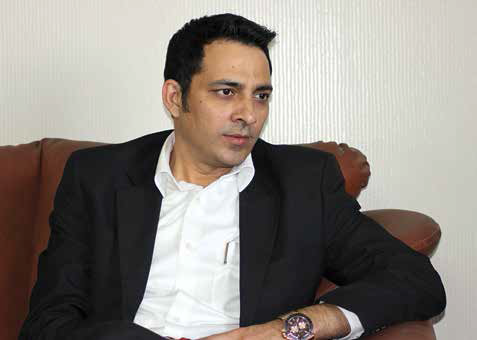Issue No. 8 / April 16,2015

A few years back, voice calling dominated all of the revenue for telecom operators. Data was a secondary or tertiary priority. With the advent of smartphones, data is gaining mainstream popularity. Today, data generates about 10 per cent of the revenue for telecom operators, and its contribution is going to increase exponentially. Earlier, users would rely only on voice networks to call. Over time, we expect most of the voice calling users to shift to VOIP calling (Skype, viber, whatsapp calling, etc) . users are getting habituated to using data to check their mails, use instant messaging, watch videos on YouTube.
The major telecom carriers in India are shifting to Long Term Evolution (LTE) networks, also known as 4G. If 4G on the cards for Tikona?We are currently operating in five major circles, which cover about 29 per cent of the population in India. We are focused on enhancing the networks and user experience in all these circles, but it will happen in phases. The initial deployment has already started.
Around the world as well, there is a growing debate on net neutrality. What is your take on that?India is still behind countries like the US and Europe, but we are fast catching up. Net neutrality is a debate India will have to address, but there is still time for that. The priority to ensure that internet reaches to ever corner of the country first, and this is realistically possible. When you put all the operators together, we carry a lot more data than several countries put together.
In the west, the streaming model has replaced traditional cable TV, where services like Netflix and Hulu plus let you stream your favourite movies and shows on TV whenever you want, instead of at a specific time. Do you think that model will come to India anytime soon, considering the high data requirements for these services?I think India has a beautiful habit of accepting whatever practices which are unique and creative. Just a few years back, no one thought that streaming music in India would ever catch on, but today look at the success of music streaming companies like Saavn and Spotify. Take ecommerce as another example. It took time for India to open to the idea of buying products online, but when it did react, there was no looking back. Ultimately, India is a consumer driven market. The moment the consumer demands a service, we provide it. Failure to adapt to consumer needs is a recipe for disaster. Services like Netflix will soon become a reality in India. It is important to show value to the consumer.
So what sets Tikona apart from the competition, in terms of value proposition for the consumer?Unlike most of our competitors, our focus is very clear. We are purely a broadband provider. We don’t have any other distractions on the table. We are a startup organisation, with a straightforward strategy. We are committed to provide the best broadband experience for you users, whether it is home broadband, office broadband, or leased line connectivity. Tikona currently has the world’s largest outdoor Wifi network. In India, the voice market problem is solved. There is no unmet need in voice. But when you look at data, there is a huge gap in demand and supply. We are focused at reducing this gap.
In India, the voice market problem is solved. There is no unmet need in voice. But when you look at data, there is a huge gap in demand and supply. We are focused at reducing this gap
You must be a very busy person. How do you like to spend your free time?I don’t think I am a busy man. The trick is to strike the right balance between work and home. The key to succeed is priorities your time. Even in my free time, I love to visit my hometown, Kanpur, which is very close to me. My entire family is there, and I try to visit every opportunity I get.
- By Neeraj Varty